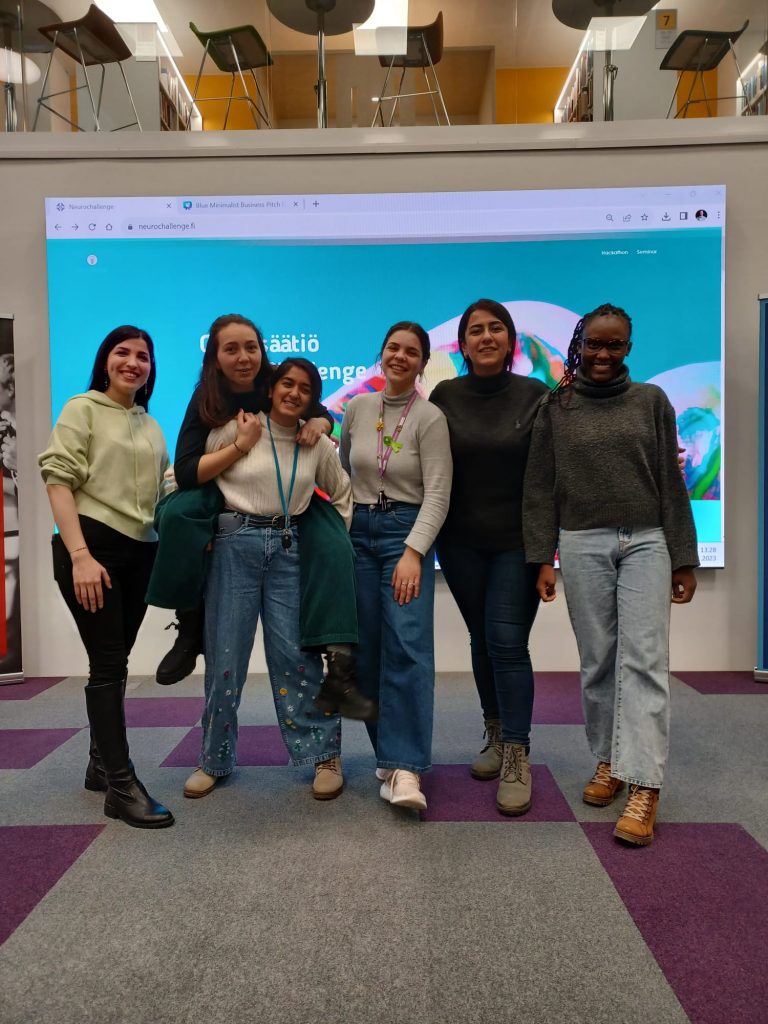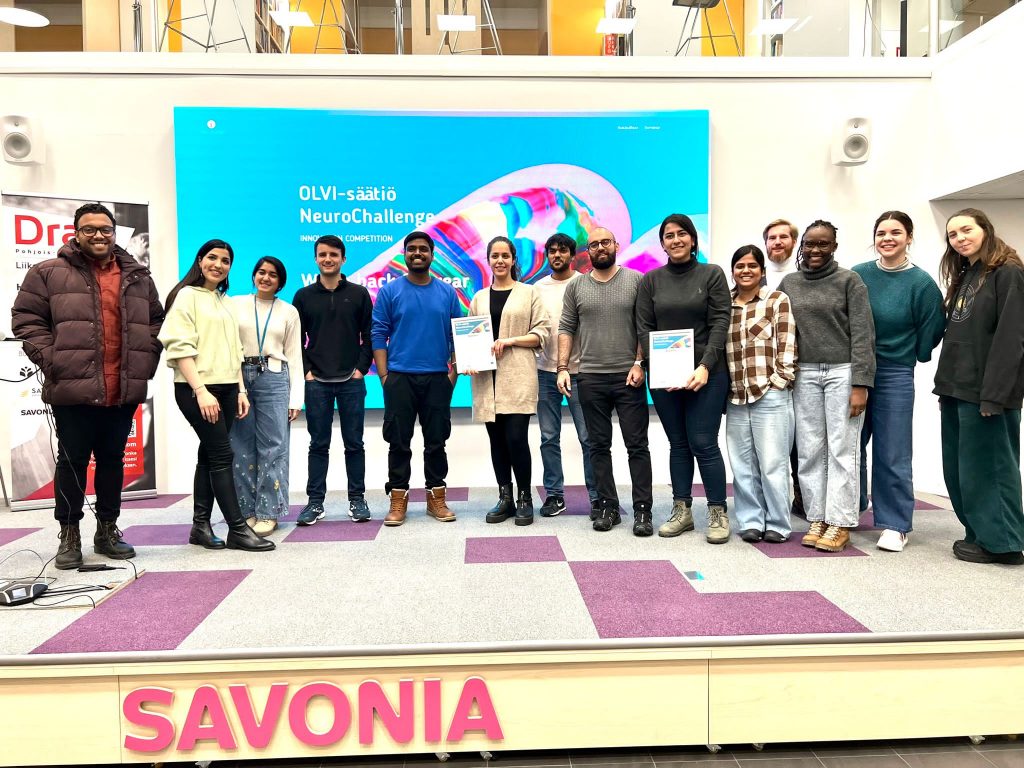Catherine Kayonga: From Different Disciplines to One Vision: My Multidisciplinary Hackathon Experience
Never in my lifetime would I ever have thought of being part of a hackathon, first and most importantly, because I was oblivious to what a hackathon entailed. However, being a part of the Neuro-Innovation PhD programme, I was granted an opportunity to participate in the NeuroChallenge2023 hackathon with a multi-disciplinary team. Our aim was to develop creative solutions to improve brain health in the ageing population within 48 hours.
I must confess that initially, there were so many mixed feelings, as the first time doing anything usually evokes a range of emotions ranging from excitement to uncertainty, self-doubt, the fear of failure and so on. Despite all the uncertainty and mixed feelings, there we were in a 48-hour challenge where we had to develop an innovative solution to improve brain health in the ageing population.
The 48-hour Journey!!
The first phase of idea creation within that short timeline was the most challenging, in my opinion, as it seemed like an ever-ending maze of crafting, moulding, and reviewing several ideas to establish the most innovative of them all. Believe me, the list was long, mainly due to our different professional backgrounds; we even had a wine-tasting idea at some point to improve brain health through memory recovery; well, I will leave that story for another day. However, using the concepts of De Bono’s six thinking hats enabled us to finally conclude and put forward the best contending idea of them all, and no, it was not the wine-tasting innovation idea.
The mentorship sessions were vital segments of the hackathon experience because of the insights given by the mentors into what an innovative idea entails, like the clear problem identification novelty of the solution, the health economics estimates, the market potential, possible funding sources, and recognition of resources that would be needed. With the multidisciplinary backgrounds of our mentors, we received comprehensive guidance that helped us focus on the important elements of developing the idea further.
Constant communication about our strategy of execution helped us to be on the same page regarding our goal. Even though variances often crept up, especially about the details of the execution, versatile online sharing tools like the shared Google document, where we noted down our main goal, objectives, research, and statistics, synchronised our understanding and input towards the idea development.

The division of roles increased productivity because we each took on different tasks, like some did the market feasibility component, health economics component, research about the competitive advantage, literature about the existing gap, and possible collaborators. This helped us to work more efficiently to complete the tasks.
Of course, it would not have been possible without the food, snacks, and constant flow of tea and coffee in the content creation process. We took it upon ourselves to keep hydrated, and even though we sometimes encountered some challenges during the process, having snack breaks helped rejuvenate our energy and zeal to get on with the creation process.
The time elapsed quickly, and the moment of truth had come for us to showcase our idea. Even though I was not the one pitching the idea, I still felt anxious. Our idea was presented alongside other innovative and amazing ideas from other teams. It was a great learning process for me, as it revealed the creativity of people from different walks of life, all coming together with one vision of creating ideas to improve brain health within the ageing population.

Emerging as the third group and receiving an honorary mention for the novelty of our idea was a great feeling because it validated all our effort, the long work nights and even the challenging times we faced along the process. The day turned out even better when friends and colleagues were announced as runners-up and got a monetary prize. This experience would not have been possible without my teammates’ dedication, optimism, zeal, endurance, and perseverance, from whom I learnt a lot in the 48 hours.
My final thoughts and takeaway from this experience were that the new and harrowing experiences teach us the most and that we should always allow ourselves to live in the moment and be courageous to try new things.
Catherine Kayonga works as a doctoral researcher in the Neuro-Innovation PhD programme. Her research focuses on unmet social and healthcare needs of older people.